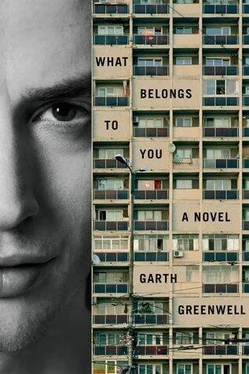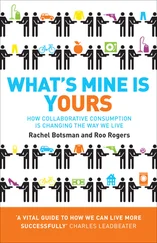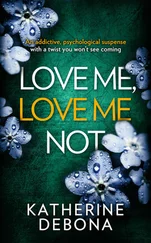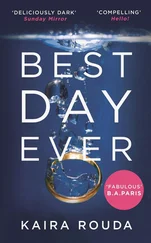Taka , she said then, once she was seated, while I was still fumbling with my clothes, so, the best treatment for this disease is an injection of penicillin, but as unfortunately now there is no penicillin available, this course of treatment is not possible. Wait, I said, interrupting her, and maybe intending to reclaim something, to mount some challenge, how is that possible, not to have such a basic thing? But she was unperturbed, holding up a single hand to silence me. The manufacturer of this drug is in Austria, she said, and they have stopped distributing it to us; for four months it has been impossible to find in Bulgaria. Anywhere, I asked, not quite believing it, and said again, how is it possible, but she shrugged her shoulders and went on. You can check this for yourself if you like, of course, but I can tell you that no one in Bulgaria has had this drug for months, and no one can tell you when we will have it again. It is available in Greece, I think, she said, I will write you a prescription if you’d like to go there for your treatment. How could I go there, I said, I have a job here, I can’t go to Greece. Kakto i da e , she said, however that may be, and then went on to propose an alternative. The second best treatment is a course of pills, she said; it is not the best option, but most of the time it does the job. She reached for a pad at the edge of her desk. You will take the pills for two weeks, she said, and then after three months you will be tested again, to see whether the treatment has been successful. I had read all I could find about treatment on the Internet, and I knew that a two-week course of pills wasn’t always enough, especially if it was an old infection, in which case four weeks was more likely to work. If there’s doubt, I ventured, shouldn’t I take the pills for a longer time, but she held up her hand before I had finished speaking, and began reciting a text that this time I was sure was an official script. In making these recommendations, she said, I’m following the guidelines of the Ministry of Health and Prevention, zdraveopazvaneto , I’m not sure of the best translation; should you wish to follow another treatment, I cannot accept responsibility for the consequences. I was Vie again, she had returned to the formal address, and I felt like this was a further humiliation, though I couldn’t say why. And if I accept the responsibility for those consequences, I said, as she began writing on her pad, will you write me a prescription for four weeks? She continued writing, and in the same tone of officious formality began to say again that she could only follow the Ministry’s regulations, but then she paused and looked up. In general, she said, there is not a problem in using a prescription twice. This was true, I would find; the prescription wasn’t dated, and later that afternoon, when the pharmacist handed it back to me along with my pills, there wasn’t any sign on it that it had already been filled, I could use it as many times as I wanted. She finished writing and held the paper out for me to take, remaining in her seat so that I had to step forward and reach over the large desk. And that’s all, she said, releasing me, you will return in three months for another test.
I turned toward the door, desperate to leave, exhausted by my encounter with this woman, who had been uzhasna , I thought, awful, thinking it half in Bulgarian and half in my own language, which I returned to as if stepping onto more solid ground. One more thing, I heard the woman say behind me, drawing me back, her chair squeaking as she stood. I turned to see her moving toward another side table, where there was a large ledger book lying open. It was like the book in which we kept track of our classes each day at my school, signing for every hour we taught. Because of its danger, the woman said, the Ministry requires that we report all cases of this illness. I felt a sudden concern, wondering if this would complicate my stay in the country, my visa that must be renewed each year; but I thought also it would be a way not to choose, if I was forced to leave, it would almost be a relief. Then I looked down at the page, where in a quick, not quite cursive Cyrillic I saw that she had gotten my name wrong, putting down my first and middle names but leaving off the last; there wouldn’t be any consequence, I thought, they wouldn’t be able to find me at all. In the large box next to this mistaken name they had glued in a strip of paper with a typed statement, a pledge of sorts not to donate blood until tests showed I was no longer a danger. The woman laid her finger, with its long painted nail, on the blank line beneath this, saying I had to sign it before I left. I did so, putting my initials down with a little flourish, entirely illegible. She closed the book as soon as I was finished, using both hands to hold the long pages in their place as she folded it shut. I can go now, I said, phrasing it half as a question, and she nodded, though as I laid my hand on the doorknob I heard her voice again. Tell me, she said, did you have this disease when you came here, did you bring it with you? I paused, keeping my hand on the door, and then without turning I replied Of course not, it’s something I picked up here. And then, as I opened the door, with a bitterness I didn’t plan, A souvenir of your beautiful country, I said.
I closed the door behind me and sat down again on the bench. I was eager to leave but I hadn’t paid yet, and before I could speak to anyone I needed a moment to myself. So I sat, staring at nothing, at the floor, determined not to see anything for a while; I sat with my head in my hands, and then with my hands over my eyes, the heel of each palm fitted to the socket. It was a posture of distress, I suppose, though it wasn’t quite distress that I felt. I didn’t understand the bitterness with which I had spoken, bitterness not just toward the woman but toward the place, this country I had chosen; I hadn’t known I felt it, and I wondered how deep it went. There was something else troubling me, too, and after I had sat for a little while I realized that what the doctor had told me contradicted Mitko’s story. The last time I had seen him he said he needed money for injections, that the pills hadn’t worked, but it must have been a lie; there weren’t any injections to be had, pills were the only treatment he could get. For a moment it was as if I hung suspended, unsure of what I felt. I didn’t know why I was so surprised, I knew Mitko couldn’t be trusted, that he would do or say almost anything for money; and this was something I could hardly resent, when it had given me access to him in the first place. But I was angry, I felt I had been made a fool. Maybe I imagined we had gotten past this somehow, that the sickness we shared established a kind of solidarity between us, a shared ground. And I had been generous, too, I had helped him without getting anything in return. But that wasn’t true, I thought suddenly, I had gotten something in return, he had made sure of that when he followed me into the bathroom and made me see how much I wanted him. He hadn’t allowed me to be generous, that had been the point of what he had done. I had wanted to give without taking, but it must have been humiliating for him, not to have anything to bargain with, and I wondered now if I had liked his humiliation, if that was the pleasure I took in my generosity, that I was humiliating him in giving him what he needed while claiming not to need anything back. R. had been right, there would be no end to it, not just to Mitko’s taking but to my own false motives; there could never be any shared ground between us, we would never find a way to be decent to each other. I had to end it, I knew, I had to give up the pleasure of him, not just the obvious pleasure but the pleasure of being kind, of what I had taken for kindness and now feared was something else.
Читать дальше












